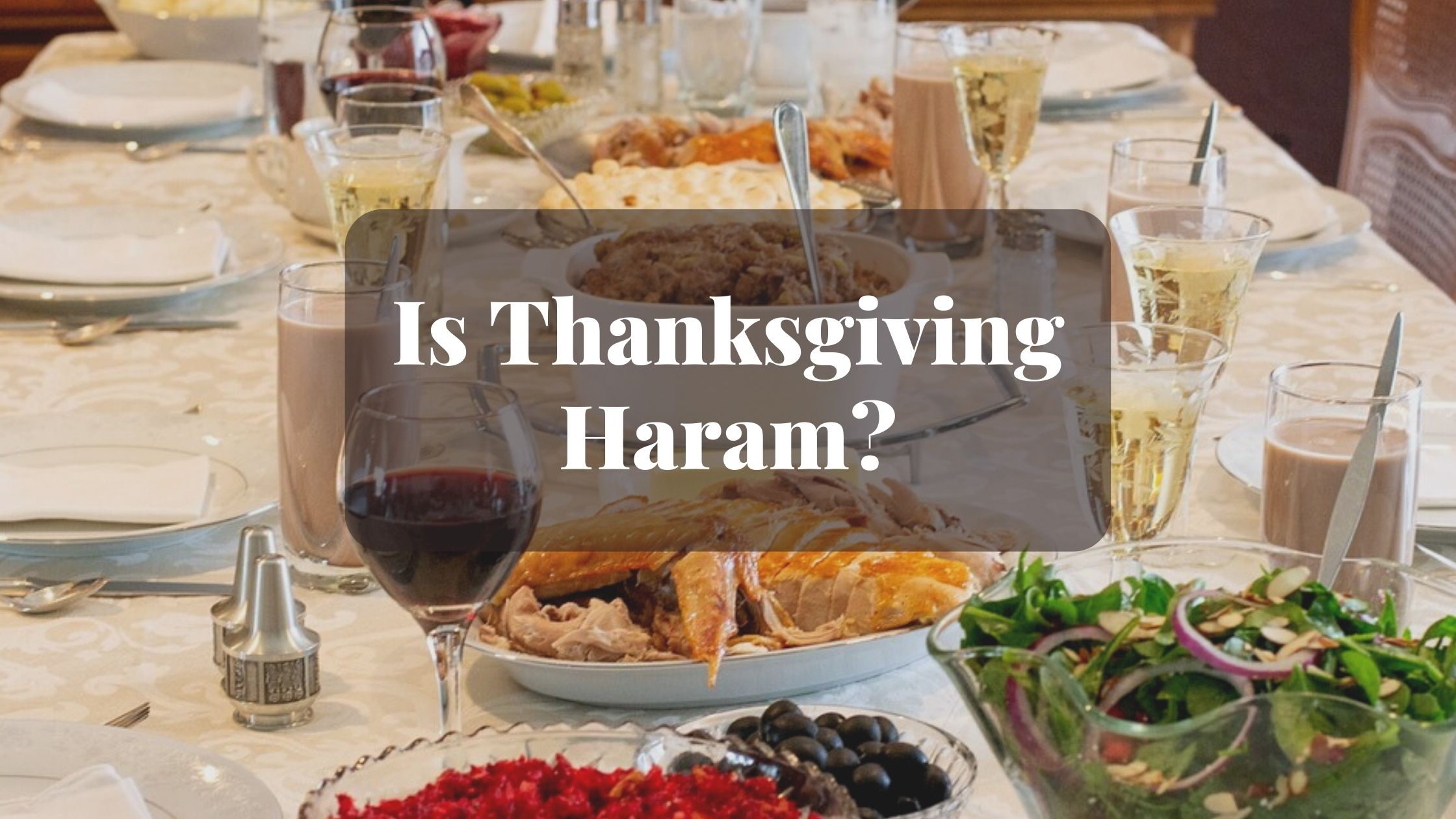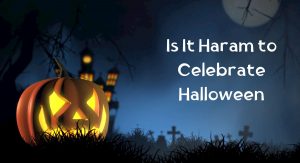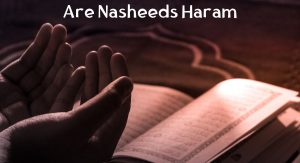Thanksgiving is considered haram in Islam due to the prohibition of imitating non-Muslim festivals and national holidays. While Thanksgiving has secular origins, it is seen as a distinguishing mark of a particular nation. Muslims are encouraged to prioritize the completeness of Islam and refrain from participating in Thanksgiving or similar celebrations, as it goes against the principles and sense of honor of a believer.
Is thanksgiving haram? With Thanksgiving just around the corner, many Muslims are wondering if it is permissible to celebrate the holiday. After all, Thanksgiving is a holiday that is steeped in pagan and secular traditions. In this blog I explore whether it is halal to celebrate thanksgiving and if Muslims can celebrate this festival.
What is Haram?
Haram is an Arabic term meaning “forbidden”. In Islam, things that are considered haram are typically those that are harmful to oneself or others, or that go against the teachings of Islam.
There are many things that are considered haram in Islam, such as stealing, murder, lying, and cheating. However, there are also many things that are considered haram that are not necessarily harmful to others, such as eating pork, drinking alcohol, and gambling.
While there are many things that are considered haram, it is important to remember that Allah is the ultimate judge and that only He knows what is truly best for us. We should always strive to do what is right and good, and leave the rest up to Him.
What is Thanksgiving?
Thanksgiving is a holiday celebrated in the United States and Canada. It is celebrated on the fourth Thursday of November.
The history of Thanksgiving is a bit complicated. The first Thanksgiving was celebrated in 1621 by the Pilgrims. The Pilgrims were a group of English settlers who came to America to escape religious persecution. The first Thanksgiving was not a national holiday, but it was celebrated each year by the Pilgrims.
In 1789, George Washington declared the first national Thanksgiving Day. President Abraham Lincoln declared Thanksgiving a national holiday in 1863. It is celebrated to give thanks for the blessings of the past year. People usually celebrate the day by eating a large feast with family and friends.
Is Thanksgiving Haram?
Some people believe that Thanksgiving is haram, or forbidden in Islam, just like Christmas is considered haram. This is because the holiday involves the celebration of non-Muslim holidays and rituals. However, there is no specific prohibition against celebrating Thanksgiving in Islam. Muslims are allowed to participate in the holiday if they choose to do so, as long as they do not violate any of the Islamic principles.
If you choose to celebrate Thanksgiving, there are a few things to keep in mind. First, make sure that you do not participate in any activities that are not allowed in Islam, such as drinking alcohol or eating pork. Secondly, be sure to give thanks to Allah for His blessings, both big and small. Finally, try to spend time with your family and friends, and enjoy the festive spirit of the holiday. As long as you use the day to celebrate Allah and be thankful for his blessings, it is permissible to celebrate the day. (Source)
FAQs
Do Islamic people celebrate Thanksgiving?
Thanksgiving is primarily a cultural holiday celebrated in the United States and Canada. It has its roots in European harvest festivals and is commonly associated with the Pilgrims’ celebration in the early colonial period. While Thanksgiving is not an Islamic religious holiday, some Muslims in these countries do participate in the festivities as a way to express gratitude and engage in community celebrations. However, it is important to note that not all Muslims observe or celebrate Thanksgiving, as it is not an integral part of Islamic religious practices.
What do Muslims mean by Thanksgiving?
In Islam, the concept of thanksgiving or expressing gratitude is highly valued. Muslims believe in the importance of showing gratitude to Allah (God) for His blessings and favors. They express thankfulness by engaging in acts of worship, such as prayer, fasting, and charitable deeds, throughout the year. Islam encourages believers to be appreciative of Allah’s blessings and to demonstrate gratitude in their daily lives, rather than confining it to a specific holiday like Thanksgiving.
Is Thanksgiving for all religions?
Thanksgiving as a holiday is not specifically tied to any particular religion. It is primarily celebrated in the United States and Canada, where it is considered a secular holiday. While it has historical and cultural roots in Christian traditions, Thanksgiving has evolved into a more inclusive celebration that is not limited to any specific religious group. People from various religious backgrounds and those who do not follow any particular religion can choose to celebrate Thanksgiving as a time to express gratitude, gather with loved ones, and reflect on the blessings in their lives.
Conclusion
The question of whether Thanksgiving is haram, or forbidden, is subjective and depends on one’s religious beliefs and interpretations. While some may argue that certain aspects of the holiday, such as its historical origins or the inclusion of non-Islamic traditions, could be considered inconsistent with Islamic teachings, others may find value in the spirit of gratitude, unity, and familial bonds that Thanksgiving promotes. Ultimately, it is up to individuals and their religious authorities to determine whether participating in Thanksgiving celebrations aligns with their faith. It is important to approach such discussions with respect for differing viewpoints and to prioritize the principles of tolerance, understanding, and harmony in our diverse societies.








